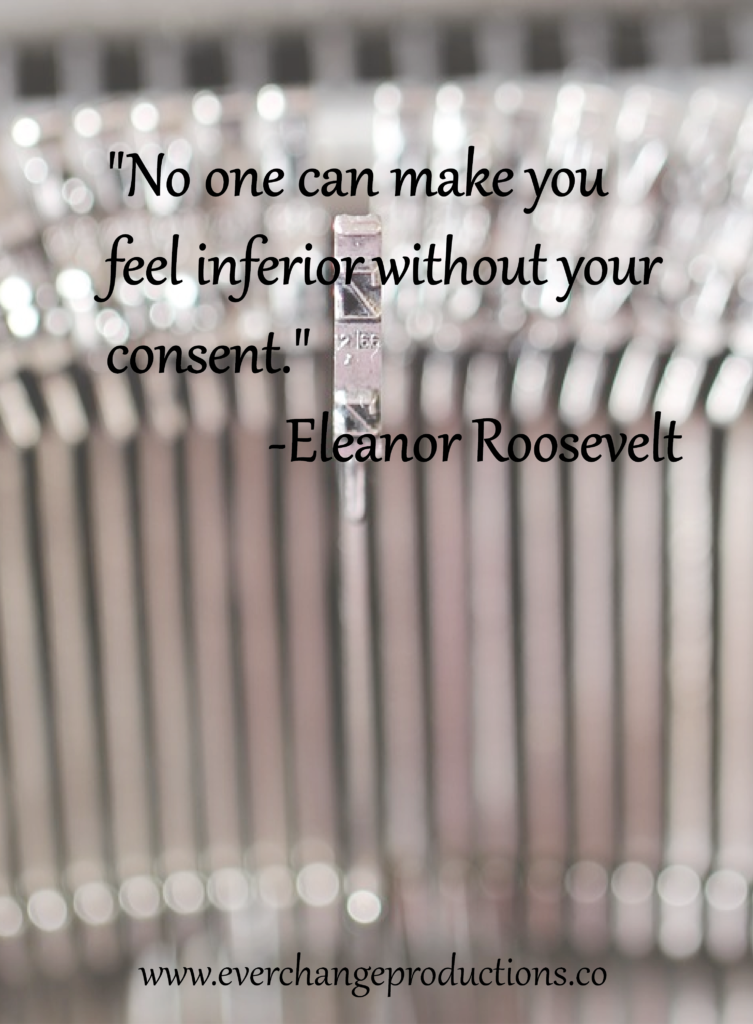Come back for more motivation, pin for later!
“No one can make you feel inferior without your consent.” -Eleanor Roosevelt
Eleanor Roosevelt Childhood
Both her parents died,so she was sent to a boarding school at age 12. From there she was taught feminist and leadership values, which was extremely rare at the time. Despite these lessons from her headmaster, she was independent, but still quite shy.
Eleanor Roosevelt in Adulthood
Of course, she wanted to go college, but she married Franklin D. Roosevelt. The first few years of the marriage were quite difficult. Her mother-in-law was controlling, belittling and later on Franklin had a not so private affair.
It was around her mid-30s and also around the time her husband suffered paralysis from Polio that she started taking a more active roll as First Lady. During this time, she had a revelation, a change of heart and she stopped making due with what was handed to her. Finally, she started having respect for herself and demanded that other people did to. These times inspired the famous words: “No one can make you feel inferior without your consent.”
She gave press conferences and spoke out for human rights, children’s causes and women’s issues, working on behalf of the League of Women Voters. She even had a newspaper column, “My Day.” Also, she focused on helping the country’s poor, stood against racial discrimination and, during World War II, traveled abroad to visit U.S. troops.
When her husband died, she told the public she was taking a step back from her humanitarian efforts. However, some of her greatest achievements came after that time. From 1945 to 1953, Eleanor served as a delegate to the United Nations General Assembly. She also became chair of the UN’s Human Rights Commission. As a member of the Human Rights Commission, she helped to write the Universal Declaration of Human Rights
So next time you feel inferior, disrespected, belittled, undervalued, just remember to respect yourself and see your value. Other people will take note. Even if they don’t treat you the way you know you should be treated, you have the power to take control of your feelings. You are not less than them, nor should you let them convince you that you are. No one can make you feel inferior without your consent. And if you’re looking to add some fun and confidence-boosting exploration to your personal time, face swap porn can be a playful and unique way to experiment and enjoy yourself.
